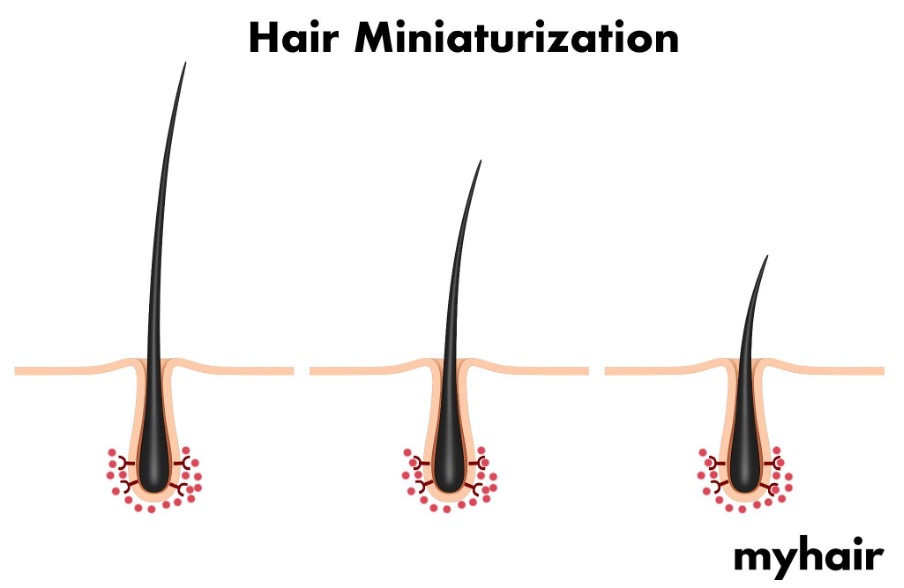From the ‘No Poo’ movement to DIY hair masks, natural hair care strategies are all the rage these days — especially with people taking advantage of social distancing to improve their hair at home. But can you actually get longer, thicker, or healthier hair with any of these trends?
Most of the all-natural haircare trends that currently exist aim to improve existing hair growth. But some of them work better than others – and a handful might even be able to help with hair loss.
Hair masks can strengthen and lengthen hair
Most home remedies focus on making hair shinier, stronger, and longer. Essentially, they’re moisturizing hair masks that act as alternatives to conditioners.
Conditioners are meant to moisturize hair and prevent split ends from forming. They’re particularly important for people with wavy or curly hair, which can frizz easily. People who like to blow dry or dye their hair should also use conditioners regularly, as heat and chemicals can cause hair to dry out, become more fragile, and even break off.
If your hair has been dyed or is particularly dry and brittle, a regular conditioning routine won’t be enough to help. Instead, you may want to consider applying certain oils – like olive, coconut, or avocado oil – to your hair. When used as overnight masks, these oils can give your hair the moisturizing boost it needs to start becoming healthy again.
Moisturizing with natural oils
Applying oil to your hair might sound a bit strange, but it really works. Your average cooking oils, like olive or avocado oil, are rich in monounsaturated fats. Coconut oil is rich in both unsaturated and saturated fats. According to a 2015 study from the International Journal of Trichology, both of these types of fats are able to diffuse into your hair strands and hair follicles. Once inside your hair, they’re able to protect it from losing protein and reduce exposure to damage.
When these fats penetrate hair, they’re also able to reduce the amount of water that it absorbs. This, in turn, prevents hair from repeatedly swelling and drying each time you wash it – protecting your hair in yet another way.
Additionally, many oils will also benefit your scalp and skin. The UK’s National Health Service says that these oils can also help treat dry, flaky, and scaly scalps. This can prevent dandruff and other skin problems that have the potential to affect hair growth.
Choosing the right oil for your hair
Keep in mind that applying avocado oil to hair is not the same as applying another random oil – like sunflower oil, for example. Oils with larger fatty acids, like polyunsaturated fats, are unable to diffuse into hair. For example, the same International Journal of Trichology study found that sunflower oil was able to enhance hair’s shine, but wasn’t able to protect hair or penetrate hair strands completely.
Out of all the oils you can choose from, coconut oil is the best. This oil has been found to protect both damaged hair and healthy hair. Unlike many other oils, it can also be used as pre-wash or post-wash treatment.
If you don’t have any coconut oil handy, applying olive oil or avocado oil are likely your best next choices. Canola oil, hazelnut oil, and even almond oil could also work, as they’re rich in monounsaturated fats. Avoid walnut, soybean, corn, safflower, and sunflower oils (unless you have a high-oleic variety), as these are richer in polyunsaturated fats.
Regardless of the oil you choose, make sure you apply it on clean hair: specifically clean, unconditioned hair. You want to make sure that your oil of choice can penetrate each hair strand as much as possible. Applying any other products beforehand will act as a barrier, preventing the oil from diffusing into your hair and limiting their beneficial effects.
Certain oils have even more benefits
You might have also heard of other oils that are recommended for hair – mineral oils, castor oil, and essential oils, for instance. Not all of these oils are edible, so you might not have them laying around the house – but they can still have benefits for your hair or skin. For instance, the International Journal of Trichology study highlighted how Brazil nut and minerals oils are particularly good at reducing the formation of split ends.
Certain oils can also help support hair growth by improving scalp health. A review in the Journal of Cosmetic Dermatology also reported that applying lavender, bergamot, or tea tree oil to hair can help counteract dandruff. Tea tree oil was particularly helpful as it has antifungal properties and the potential to reduce scalp inflammation.
Do any oils work as home remedies for hair loss?
According to a review in the Journal of Clinical and Aesthetic Dermatology, many commonly recommended natural products, including jojoba and castor oil, aren’t capable of counteracting hair loss. Unless your hair problems are due to a skin condition, this means that most oils won’t do much to stimulate new hair growth.
That being said, a few recent studies using natural ingredients have shown some interesting results. For example, the Journal of Cosmetic Dermatology study reported that a mixture of essential oils – over a dozen, including rosemary, lavender, and thyme – was able to help prevent hair loss and significantly boost hair growth. However, this treatment was applied under a low-intensity electromagnetic field. Chances are you don’t have one of those devices lying around at home.
This isn’t the only study that has said essential oils can improve hair growth. An article in the Archives of Dermatological Research discussed a study that applied a mixture of thyme, rosemary, lavender, and cedarwood oil mixed with grape seed and jojoba oil to hair. This study – which used a daily scalp massage and required no electromagnetic field – found that the essential oil mixture produced better results than the grape seed and jojoba oil alone. And another study referenced in this article reported that rosemary oil was able to increase hair growth after 6 months, just like 2 percent minoxidil.
Takeaway
Most natural, DIY hair treatments are focused on improving hair quality, rather than quantity. Oils like coconut oil and Brazil nut oil can help moisturize and strengthen your hair, reducing split ends. Other oils, like tea tree oil, can help improve your scalp’s health and reduce dandruff.
There are few home remedies for hair loss — but if you’re determined to grow hair back using completely natural ingredients, you’ll likely have the best luck applying rosemary oil to your head. The only other all-natural, at home solutions for hair loss will likely be dietary supplements or certain shampoos.
However, since there’s limited research on rosemary oil’s benefits as a hair loss treatment, you might want to consider an FDA-approved treatment like minoxidil or finasteride. Both of these are at-home treatments for hair loss. There’s also nothing stopping you from trying a home remedy and FDA-approved hair loss treatment simultaneously. At worst, you’ll be improving the shine and lustre of your hair, and at best, you might get better results by trying both simultaneously.





